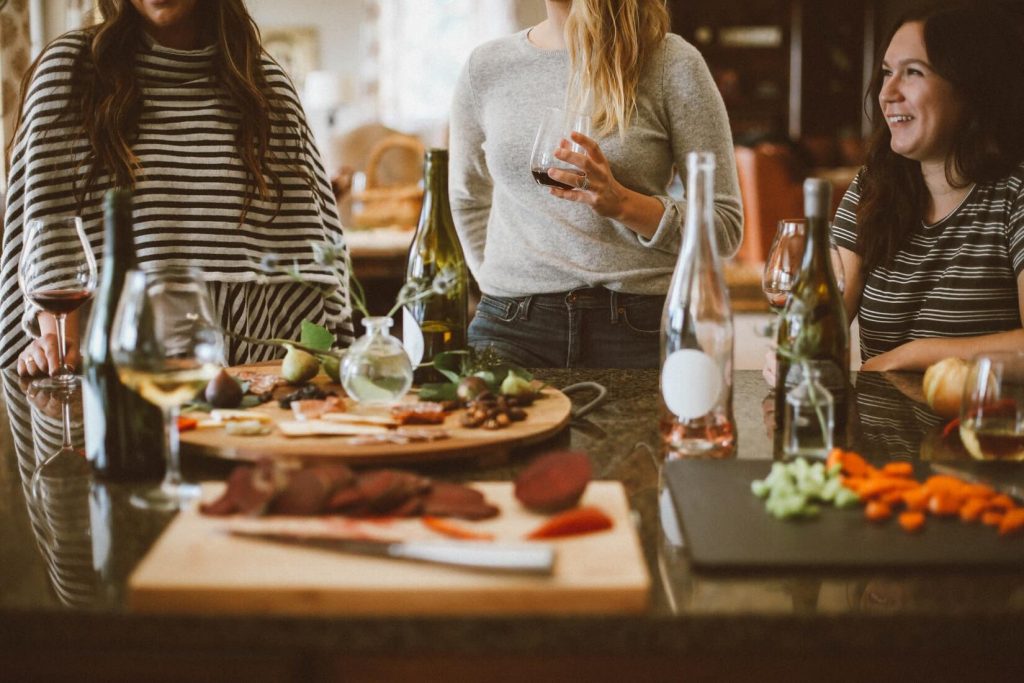Carissa Kranz, a former prosecutor and a litigator, decided that after running her own civil and criminal litigation firm for six years, it was time to switch gears. A passionate vegan, Kranz is the founder and CEO of BevVeg, a law firm that helps food and beverage companies – predominantly wine brands – become vegan-friendly, and certifies them as such. It literally offers a “stamp of approval for conscious companies.”
Many wine companies, for example, use isinglass (fish bladder) as a fining agent to make their products and sometimes its difficult to distinguish which wines are truly animal product-free. But with the BevVeg certification seal, consumers can be certain they are not being misled. “If you see our BevVeg certification seal, you can trust BevVeg worked with those brands in the spirit of full transparency and disclosures,” Kranz explained to LIVEKINDLY.
Kranz added that the firm is working to raise the consumer standard of transparency in an area that’s not only “unregulated” but also “totally deficient.” The term “vegan” is not regulated by the USDA, FDA, or TTB, she explained, so it is easy for many manufacturers to self-certify a product even though there may be some aspects of the supply chain that vegans may take issue with.
According to Kranz, if a consumer sees the BevVeg logo on a product, they can be certain that the company was not only transparent in its ingredients, but also forthcoming with information about every part of the manufacturing process.
“BevVeg gives the consumer what they are demanding: truth, authenticity, transparency, and accountability,” she noted.
The firm has gained a reputation in the world of vegan business, receiving requests from restaurants around the globe regarding which products carry the BevVeg seal of approval. Most recently, the firm worked with world-renowned sushi restaurant Nobu to certify the Raw Vegan Gin on its menu.
“Voices are being heard,” said Kranz. “More than half of purchasing decisions are based on the label.” She continued, “Companies, products, and brands are redefining their labels to target the evolving consumer audience. BevVeg is a way for a company to target the conscious consumer and, likewise, a way for the consumer to shop with confidence.”
If consumers want full transparency when purchasing, they must look for the BevVeg logo, says Kranz. Legally, a manufacturer does not have to disclose animal-based ingredients in its products. BevVeg, however, holds these companies to a higher standard than the law, “we ask the tough questions so consumers can buy with confidence,” she explained.
Although many companies are well-meaning and may even believe a product is vegan, this is not always the case. The answer is education for brands and consumers, notes Kranz, and vegan buyers must demand more from companies. She asks that consumers place more pressure on companies to be audited by BevVeg so that vegans and ethically-minded people can buy with peace of mind.
“When I was five years old, I wrote Skittles a letter to remove gelatin,” she recalls. “Years later, they did and their packaging reflected their change! Consumers should remember that every dollar spent is essentially a vote for the world that they want to live in.”
Kranz continued, “Whenever you purchase a BevVeg certified product, you’re casting a vote for veganism and cruelty-free living.”
Catch Kranz’s full talk at the Seed Food & Wine Week in Miami from November 7-11. The schedule of events and tickets are available on the event website, but to win free entry and a grand VIP festival package, join CLUBKINDLY and see here for details.
Become a CLUBKINDLY member today!


